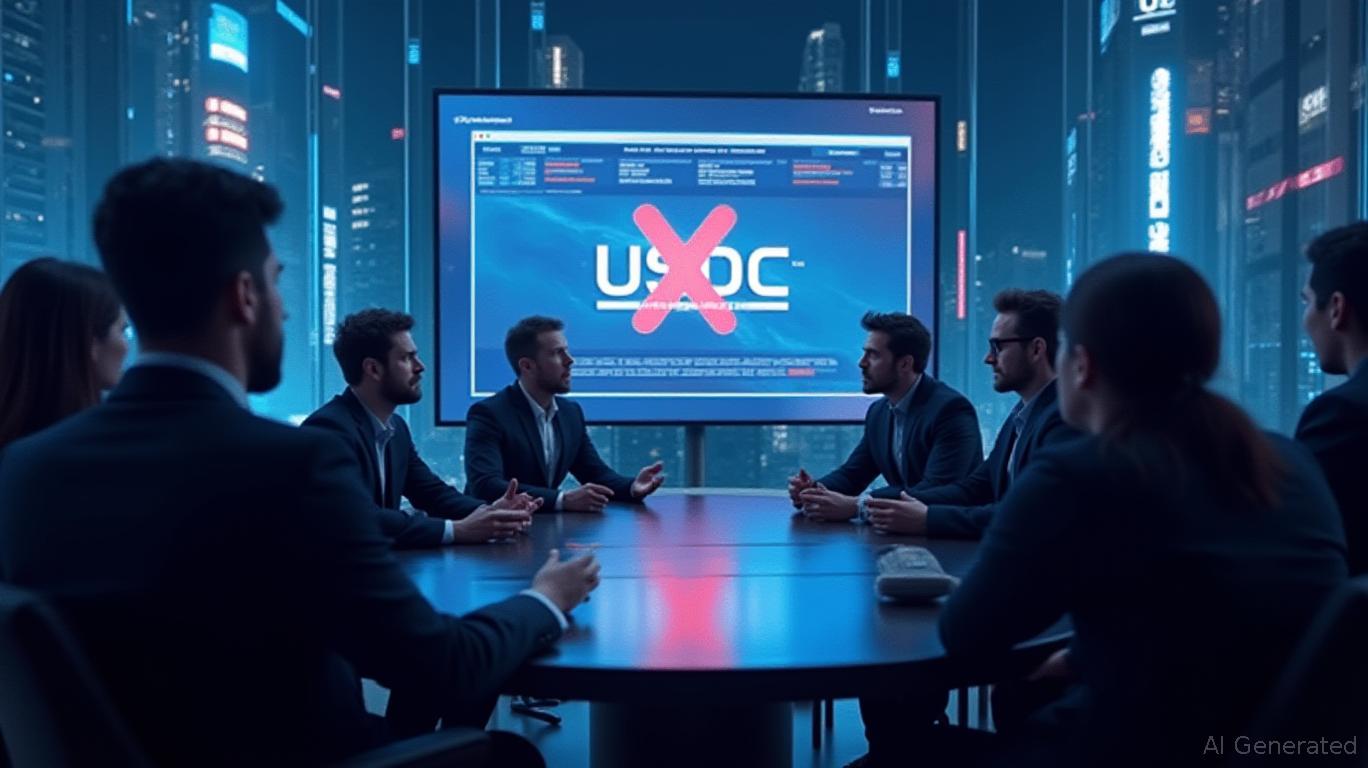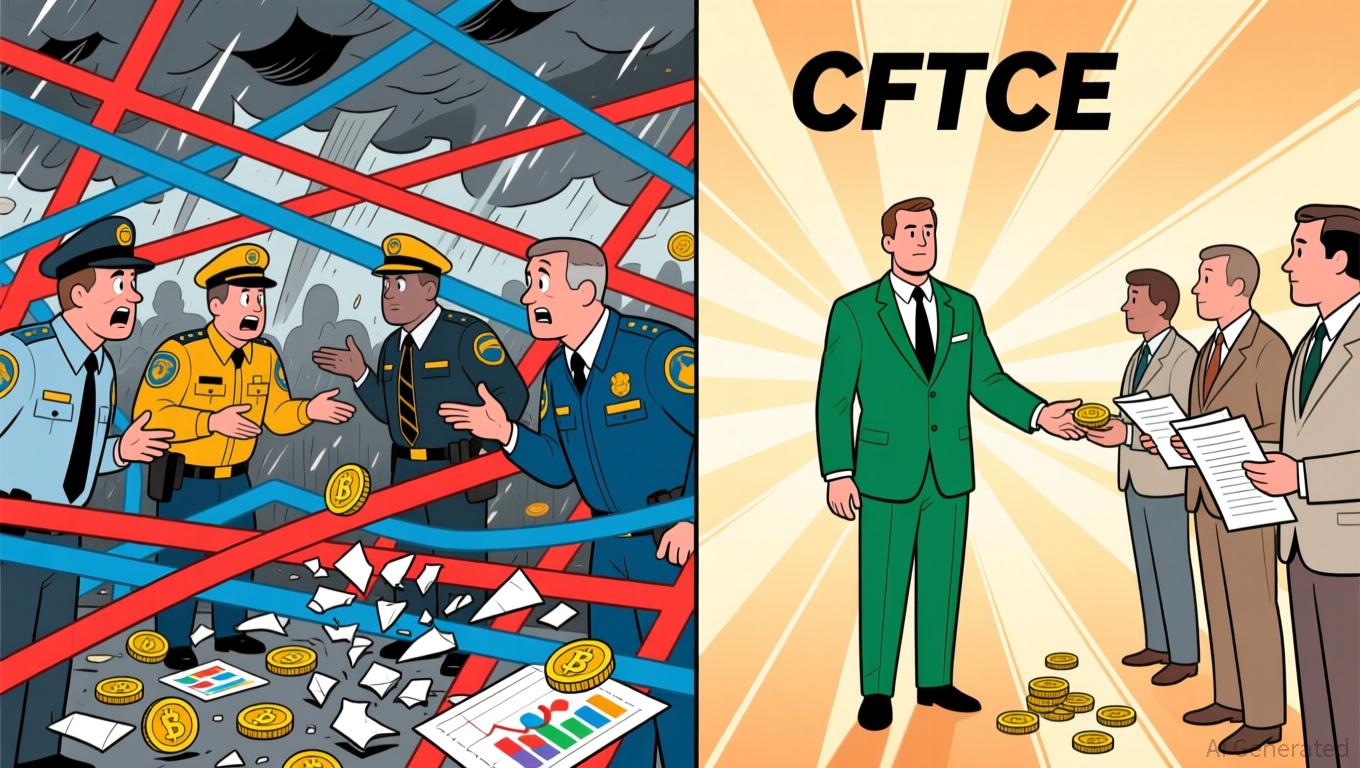Reversible USDC Ignites Discussion: Is It Possible to Balance Security and Decentralization?
- Circle explores reversible USDC transactions, challenging blockchain immutability. - Refund Protocol uses smart contracts for on-chain dispute resolution via programmable escrow. - Cetus Protocol hack highlights urgency for reversibility amid decentralization debates. - Industry adopts TradFi features to balance security and decentralization in stablecoins. - Debate persists over whether centralization measures undermine blockchain's core principles.

Circle, which ranks as the second-largest stablecoin provider, is considering ways to make transactions with its
To tackle this issue, Circle has launched the Refund Protocol, a non-custodial smart contract framework that supports on-chain dispute resolution for USDC transactions. This protocol uses programmable escrow, letting users secure funds in a smart contract until a neutral third party resolves any disputes. If a refund is approved, the funds are sent to the intended recipient; otherwise, merchants can access the funds after a set holding period. The system is designed to replicate the chargeback process found in traditional finance, while still preserving decentralized oversight Circle Introduces Refund Protocol, a Smart Contract System for … [ 3 ].
The necessity for such innovations became clear after the
Circle’s strategy mirrors a wider movement in the industry to incorporate elements of traditional finance (TradFi) to build trust in stablecoins. Tarbert highlighted the importance of allowing "a certain level of reversibility for fraud" as long as all participants consent to the rules. This approach is consistent with Circle’s enterprise-focused projects, such as its Arc blockchain, which uses Fireblocks’ custody and compliance solutions to power large-scale stablecoin operations. Arc is designed to deliver a secure, interoperable platform for cross-chain payments and capital market activities.
Regulators and the market have responded in varied ways to these changes. The U.S. has enacted the GENIUS Act to provide clearer guidelines for stablecoin oversight, while competition in the space remains fierce, with
The introduction of the Refund Protocol and the conversation around reversible transactions highlight the shifting function of stablecoins as a bridge between conventional and digital finance. By confronting threats like fraud and hacks, Circle hopes to encourage broader adoption, all while managing the fine line between technological progress and decentralization. As competition in the stablecoin arena heats up, how the industry balances these opposing demands will be crucial in shaping the digital asset landscape going forward.
Disclaimer: The content of this article solely reflects the author's opinion and does not represent the platform in any capacity. This article is not intended to serve as a reference for making investment decisions.
You may also like
Bipartisan Legislation Assigns Crypto Regulation to CFTC to Clarify Oversight Uncertainty
- U.S. lawmakers propose shifting crypto regulation from SEC to CFTC via a bipartisan bill, reclassifying most digital assets as commodities. - The draft aims to resolve regulatory ambiguity stifling innovation, building on stalled House CLARITY Act efforts during the 38-day government shutdown. - Market optimism surged as shutdown relief pushed Bitcoin above $105k, with ETF outflows persisting amid anticipation of clearer CFTC-led oversight. - Critics warn of CFTC resource constraints, while proponents hi

Solana News Update: DevvStream Invests in SOL Despite $11.8M Deficit, Shows Strong Confidence in Sustainable Blockchain Prospects
- DevvStream Corp. (DEVS) disclosed holding 12,185 SOL and 22.229 BTC, staking SOL for 6.29% annualized yield amid a $11.8M fiscal 2025 loss. - The company launched a digital asset treasury via BitGo/FRNT Financial, securing $10M liquidity from a $300M convertible note facility. - Plans include a 2026 tokenization platform for carbon credits and Solana staking, aligning with its de-SPAC/Nasdaq listing strategy. - Despite crypto market outflows, DevvStream's staked SOL attracted inflows, contrasting broader
ALGO Falls by 2.28% Over 24 Hours as Short- and Long-Term Performance Shows Mixed Results
- ALGO dropped 2.28% in 24 hours to $0.1844, contrasting with 17.29% weekly and 4% monthly gains but a 44.84% annual decline. - Traders monitor ALGO's resilience amid macroeconomic shifts, though long-term bearish trends highlight structural challenges. - Key support at $0.18 could trigger bullish momentum if held, while breakdown risks further declines toward $0.15. - A backtest analyzing 15% single-day spikes aims to assess ALGO's potential for sustained gains or pullbacks post-rallies.
BCH Gains 1.24% Following Banco de Chile’s Announcement of Bylaw Changes
- Banco de Chile (BCH) announced bylaw amendments on Nov 10, 2025, to strengthen corporate governance and align with regulatory standards. - The announcement coincided with a 10.81% 7-day stock surge, contrasting with a 2.07% monthly decline but supporting a 20.6% annual gain. - Investors viewed governance reforms positively, as such changes often signal improved transparency and accountability in regulated markets.